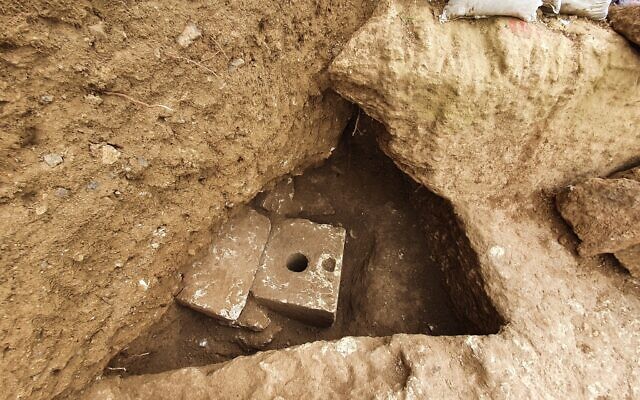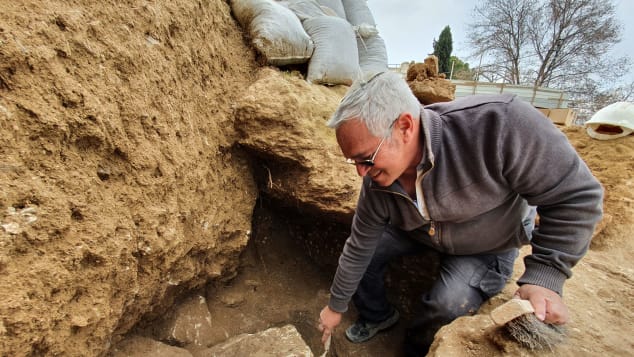It’s thought to be part of a ‘luxurious home’
According to the Israel Antiquities Authority, a 2,700-year-old private toilet from the time of the First Temple was found during an archaeological excavation in Jerusalem.
The limestone toilet cubicle was discovered at a dig site in Jerusalem’s Armon Hanatziv neighborhood as part of a project to build a new tourism facility in the area.

“A private toilet cubicle was very rare in antiquity, and only a few were found to date, most of them in the City of David”, said Yaakov Billig, director of the Israel Antiquities Authority excavation. “Only the rich could afford toilets. A thousand years later, the Mishnah and the Talmud raised various criteria that defined a rich person, and Rabbi Yossi suggested that to be rich is ‘to have the toilet next to his table'”.

According to the IAA, the bathroom had a carved stone toilet with a hole in the center, which was positioned over a deep septic tank.
The discovery is thought to be from an “ancient royal estate” from the First Temple Period that operated in the 7th century BCE, the Antiquities Authority suggested.
“It is fascinating to see how something obvious to us today, such as toilets, was a luxury item during the reign of the kings of Judah”, said Eli Eskosido, director of the Israel Antiquities Authority. “Jerusalem never ceases to amaze. One can only imagine the breathtaking view”.
Several pottery shards and animal bones were discovered in the septic tank behind the toilet, which could “teach us about the lifestyles and diets of the First Temple people, as well as ancient diseases”, said the IAA.
Archaeologists excavating at the dig site have discovered stone capitals that were formerly used for columns, as well as miniature architectural columns that once were employed as window railings.
Evidence of a garden with fruit trees and other plants that originally stood alongside the toilet cubicle, once symbolizing a “luxurious home”, has also been uncovered.
Source timesofisrael.com

